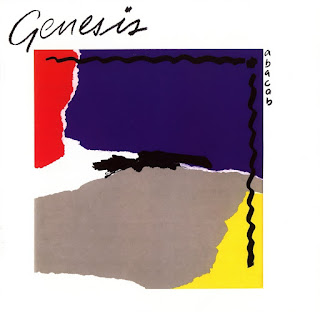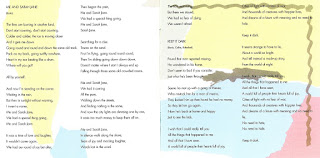Abacab is the eleventh studio album by English progressive rock band Genesis, released on 18 September 1981 in the United Kingdom by Charisma Records and 24 September 1981 in the United States by Atlantic Records. After their 1980 tour in support of their previous album, Duke (1980), the band took a break before they reconvened in 1981 to write and record a new album. Abacab is the first Genesis album recorded at The Farm, a recording studio bought by the group in Chiddingfold, Surrey. It marked the band's development from their progressive roots into more accessible and pop-oriented songs, and their conscious decision to write songs unlike their previous albums.
Abacab received a mostly positive reception from critics and was a commercial success for the band, reaching number one on the UK Albums Chart and number seven on the US Billboard 200. Genesis released four singles from the album, the most successful being "Abacab" and "No Reply at All". The album continued to sell, and was certified double platinum in 1988 by the Recording Industry Association of America (RIAA) for two million copies sold in the US. Genesis supported the album with their tour of North America and Europe in 1981 which formed most of their live album Three Sides Live (1982).
At the end of their 1980 tour in support of their previous album Duke, the line-up of singer and drummer Phil Collins, keyboardist Tony Banks, and guitarist Mike Rutherford took a break from touring and recording. In November 1980, the band purchased Fisher Lane Farm, a farmhouse with an adjoining cowshed near Chiddingfold, Surrey, as their new rehearsal and recording facility. The building was remodelled into a studio, and the trio settled in March 1981 to write and record new material for Abacab, the first Genesis album recorded in England since A Trick of the Tail.
The new environment had a productive effect on the writing process and the band had written enough for a double album, but they discarded one hour's worth of songs because they sounded too similar to their past albums. Banks said a conscious effort was made by the group to keep melodies as simple as possible, which signalled further changes in their direction. Rutherford pointed out that the omission of familiar-sounding tracks was done in order to avoid Genesis becoming "a caricature of ourselves", so a change in direction was therefore necessary. The shift was also underlined in their production with the departure of David Hentschel, their producer and engineer since 1975, and the arrival of his replacement Hugh Padgham, who was chosen following his work on Collins' solo album Face Value and former Genesis singer Peter Gabriel's third solo album. The band marked Abacab as a departure from their previous albums as it is closer to their natural live sound. For the first time in their history, the production duties were solely credited as Genesis; Padgham is credited as the album's engineer.
Abacab features mostly group-written songs, with only three of its nine tracks written solely by each of the three members; Banks wrote "Me and Sarah Jane", Collins wrote "Man on the Corner", and Rutherford wrote "Like It or Not". "No Reply at All" features the Phenix Horns, the horn section of American band Earth, Wind & Fire.
The album is named after its title track, "Abacab". Rutherford said "there were three bits of music in 'Abacab', and we referred to them as 'section a', 'section b', and 'section c'... and at different times, they were in different order. We'd start with 'section a' and then have 'section c' ... and at one point in time, it spelled Abacab. On the final version, it's not that at all, it's like 'Accaabbaac'."
The keyboard sound on "Who Dunnit?" is the result of Banks changing the presets on his Prophet synthesizer as he plays. Live performances of this song featured the novelty of Rutherford playing drums alongside Chester Thompson (although Collins played drums on the studio version).
Genesis recorded additional songs that were left off the album, including "Paperlate", "You Might Recall", and "Me & Virgil". These were released in the UK as the band's second extended play 3×3 and the North American edition of their third live album Three Sides Live, both released in 1982. Two other songs, "Naminanu" and "Submarine", originally part of a four-song suite with "Dodo/Lurker", were instead released as B-sides on the album's singles.
Abacab was released on 18 September 1981 in the United Kingdom by Charisma Records and 24 September 1981 in the United States by Atlantic Records. It was simultaneously released in four different colour schemes.
A new version of Abacab was released in the UK and Japan on 2 April 2007. It was released in the U.S. and Canada as part of the Genesis 1976–1982 box set on 15 May 2007. This includes the album in remixed stereo and surround sound, plus related video tracks.

























No hay comentarios.:
Publicar un comentario